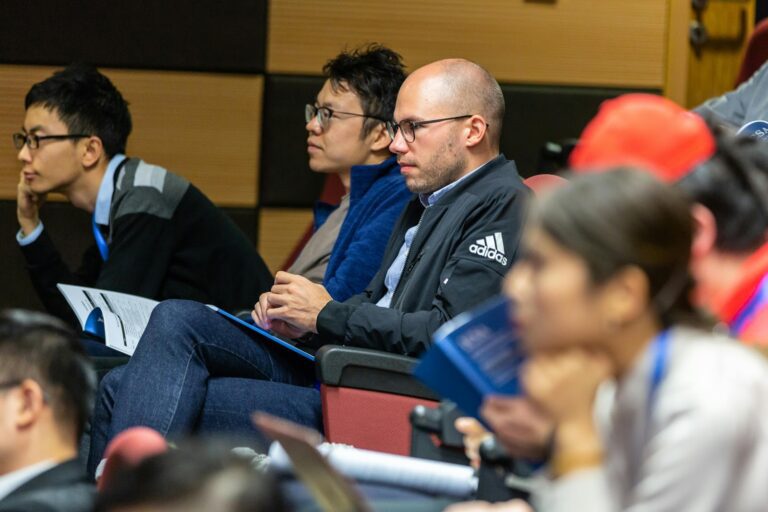Mentorship Programs For Women In STEM: Building Support Systems
Women in STEM (Science, Technology, Engineering, and Mathematics) fields often face unique challenges, including underrepresentation, gender biases, and a lack of support networks. Mentorship programs play a crucial role in addressing these issues by providing guidance, fostering professional growth, and building supportive communities. This article explores the importance of mentorship programs for women in STEM, highlights notable programs, and offers insights into how these initiatives can be leveraged to build robust support systems.
1. The Importance of Mentorship in STEM
a. Career Advancement
Mentorship helps women navigate their career paths, offering advice on academic and professional development, job opportunities, and career transitions. Mentors can provide valuable insights into industry trends and help mentees set realistic and achievable career goals.
b. Building Confidence
Confidence is crucial for career progression, and mentors can play a significant role in boosting the self-esteem of women in STEM. By sharing their own experiences and successes, mentors help mentees overcome self-doubt and imposter syndrome, encouraging them to take on new challenges and leadership roles.
c. Expanding Networks
Mentorship programs provide opportunities for mentees to expand their professional networks. Mentors can introduce mentees to key industry contacts, recommend them for opportunities, and provide access to professional communities and organizations.
d. Addressing Gender Biases
Mentors can help women navigate and counteract gender biases in STEM fields. They offer strategies for dealing with discrimination and advocate for their mentees, fostering an inclusive environment that promotes gender equality.
2. Notable Mentorship Programs for Women in STEM
Several organizations have established successful mentorship programs designed to support women in STEM. Here are some notable examples:
a. Million Women Mentors (MWM)
Million Women Mentors is a global movement aimed at increasing the number of women in STEM fields through mentorship. The program connects women and girls with STEM professionals who provide guidance, support, and career advice. MWM partners with various organizations, educational institutions, and corporations to facilitate these mentorship relationships.
b. The Society of Women Engineers (SWE) Mentor Network
The SWE Mentor Network pairs experienced professionals with women at different stages of their STEM careers. The program offers one-on-one mentoring, as well as group mentoring sessions, to provide support and guidance on career development, work-life balance, and leadership skills.
c. MentorNet
MentorNet is an online mentoring platform that connects STEM students with professionals from academia, industry, and government. The program focuses on providing guidance to women and underrepresented minorities in STEM fields. MentorNet’s flexible, virtual format allows mentees to connect with mentors from around the world.
d. The AnitaB.org Mentorship Program
AnitaB.org, a global organization supporting women in technology, offers a mentorship program that pairs women in tech with experienced mentors. The program provides resources and tools to help women build successful careers in technology, with a focus on leadership development and overcoming gender barriers.
e. STEM Women’s Initiative (STEM WI)
STEM WI aims to support and empower women in STEM through mentorship, networking events, and professional development workshops. The program connects women with mentors who can provide guidance on academic and career advancement, as well as personal development.
3. Building Effective Support Systems through Mentorship
To maximize the benefits of mentorship programs, it’s essential to create effective support systems. Here are key strategies to consider:
a. Establish Clear Goals and Expectations
Both mentors and mentees should set clear goals and expectations for the mentorship relationship. This includes defining the objectives of the mentorship, the frequency of meetings, and the areas of focus. Clear communication ensures that both parties are aligned and can work towards achieving the mentee’s goals.
b. Foster Open Communication
Open and honest communication is critical for a successful mentorship relationship. Mentees should feel comfortable discussing their challenges and aspirations, while mentors should provide constructive feedback and guidance. Regular check-ins and updates help maintain a strong and supportive connection.
c. Encourage Mutual Learning
Mentorship should be a two-way street, with both mentors and mentees learning from each other. Mentors can gain new perspectives and insights from their mentees, while mentees benefit from their mentors’ experiences and knowledge. Encouraging mutual learning creates a more dynamic and enriching mentorship experience.
d. Promote Diversity and Inclusion
Mentorship programs should strive to be inclusive and diverse, reflecting the varied experiences and backgrounds of women in STEM. Diverse mentorship pairs can provide broader perspectives and address a wider range of challenges, enhancing the overall effectiveness of the support system.
e. Provide Access to Resources and Opportunities
Effective mentorship programs offer access to resources such as training materials, workshops, networking events, and professional development opportunities. Providing these resources helps mentees build their skills and knowledge, enhancing their career prospects.
4. Leveraging Mentorship for Long-Term Success
To leverage mentorship programs for long-term success, mentees should:
a. Be Proactive
Take initiative in the mentorship relationship by actively seeking advice, setting up meetings, and following through on action plans. Being proactive demonstrates commitment and maximizes the benefits of the mentorship.
b. Seek Multiple Mentors
Having multiple mentors can provide a broader range of perspectives and expertise. Consider seeking mentors from different areas of expertise, industries, or career stages to gain diverse insights and support.
c. Stay Engaged
Maintain an active and engaged relationship with your mentor, even after the formal mentorship period ends. Continuing to seek guidance and support can lead to lasting professional relationships and ongoing career development.
Mentorship programs are vital for supporting and empowering women in STEM fields. By providing guidance, building confidence, expanding networks, and addressing gender biases, these programs play a crucial role in fostering the success of women in STEM. Notable programs such as Million Women Mentors, SWE Mentor Network, MentorNet, and others offer valuable resources and support systems. By establishing clear goals, fostering open communication, and promoting diversity, mentorship programs can create effective support systems that contribute to the long-term success of women in STEM.







